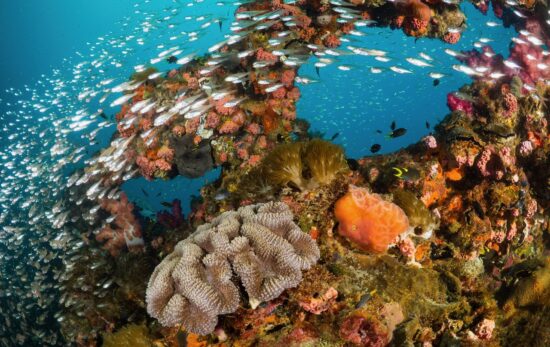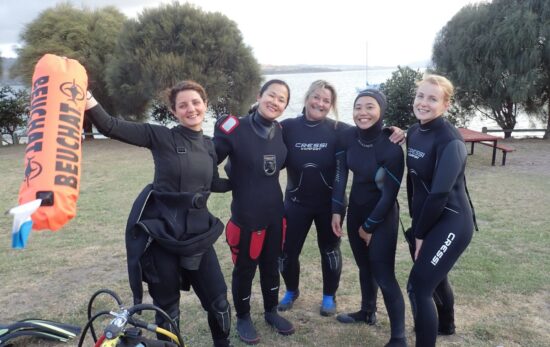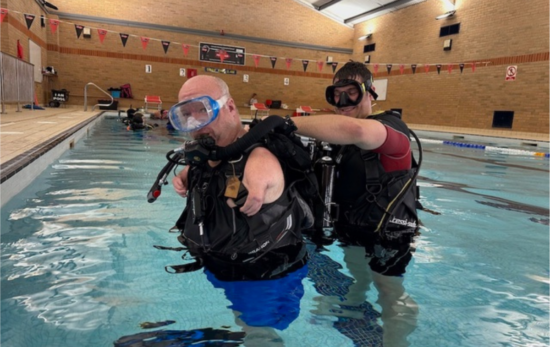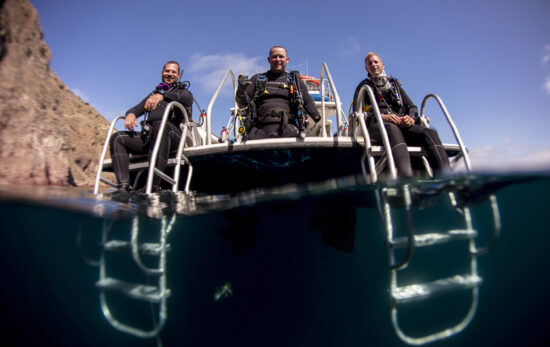The sea breeze slid the gray velvet of the morning across my cheek as we wandered a still street in Avalon toward the pier. Bob Taradash and I walked on either side of Bryan Anderson, a triple amputee, Iraq veteran, and our Open Water student. Bob and Bryan had history. He had been the young soldier’s commanding officer back in Iraq. I had only met Bryan a couple days prior and had found him a gregarious sort who injected a certain amount of levity into everything that he did. He had impressed me in confined water training with his focus and perseverance. Missing his left hand and both legs above the knee, he was not the average student, and he conquered course skills with a rapidity that was equally uncommon.
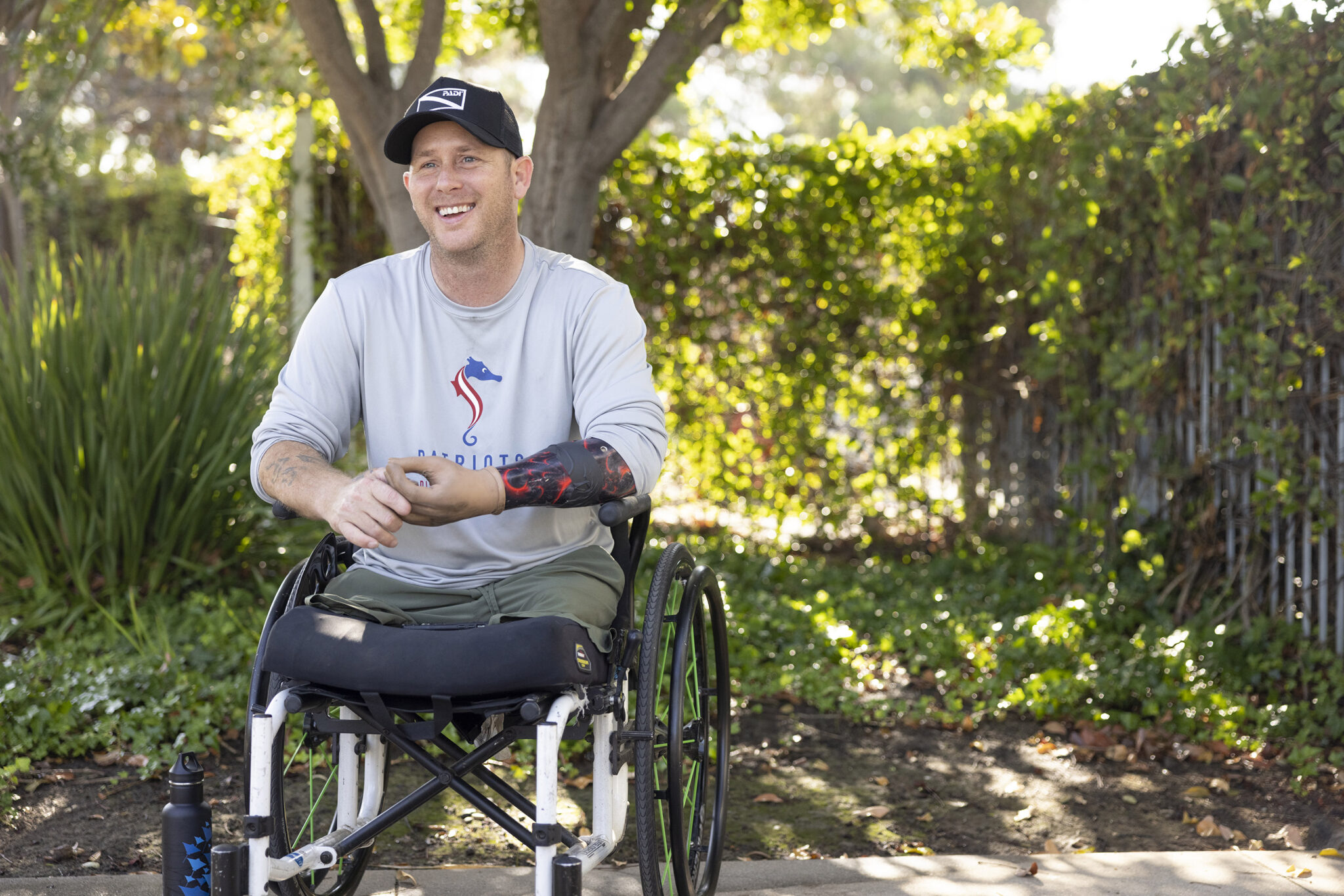
Yet, waiting for the boat, a hush fell on Bryan. Trepidation about one’s first dives in the wild ocean is almost a rite of passage, and I admit it warmed me to see Bryan beginning the first stage of an experience that unites us all as divers. From experience, I knew his nerves would build until that first splash. Then, they would dim in the deep until they blossomed as elation upon finally returning to the surface. Watching his moment of transformation would be my own private reward.
Diving is a transformative sport. Those first breaths underwater shepherd students into an exclusive society of modern explorers who experience some of the last truly hidden wonders our planet has to offer. After years spent training divers, many with physical and cognitive conditions that place them outside of average, I have learned to hunt for that moment of transformation as one of the rare instances of real magic in this life. It can’t be forced. Like anything of real beauty, it can only be nurtured toward bloom. The secret, I’ve found, is never to define what a student is or is not capable of. Instead, it is the instructor’s role to create a safe space for a student to discover their own capabilities. For true transformation is not the breaking of barriers but the realization that the only real limitations are the ones we create for ourselves.
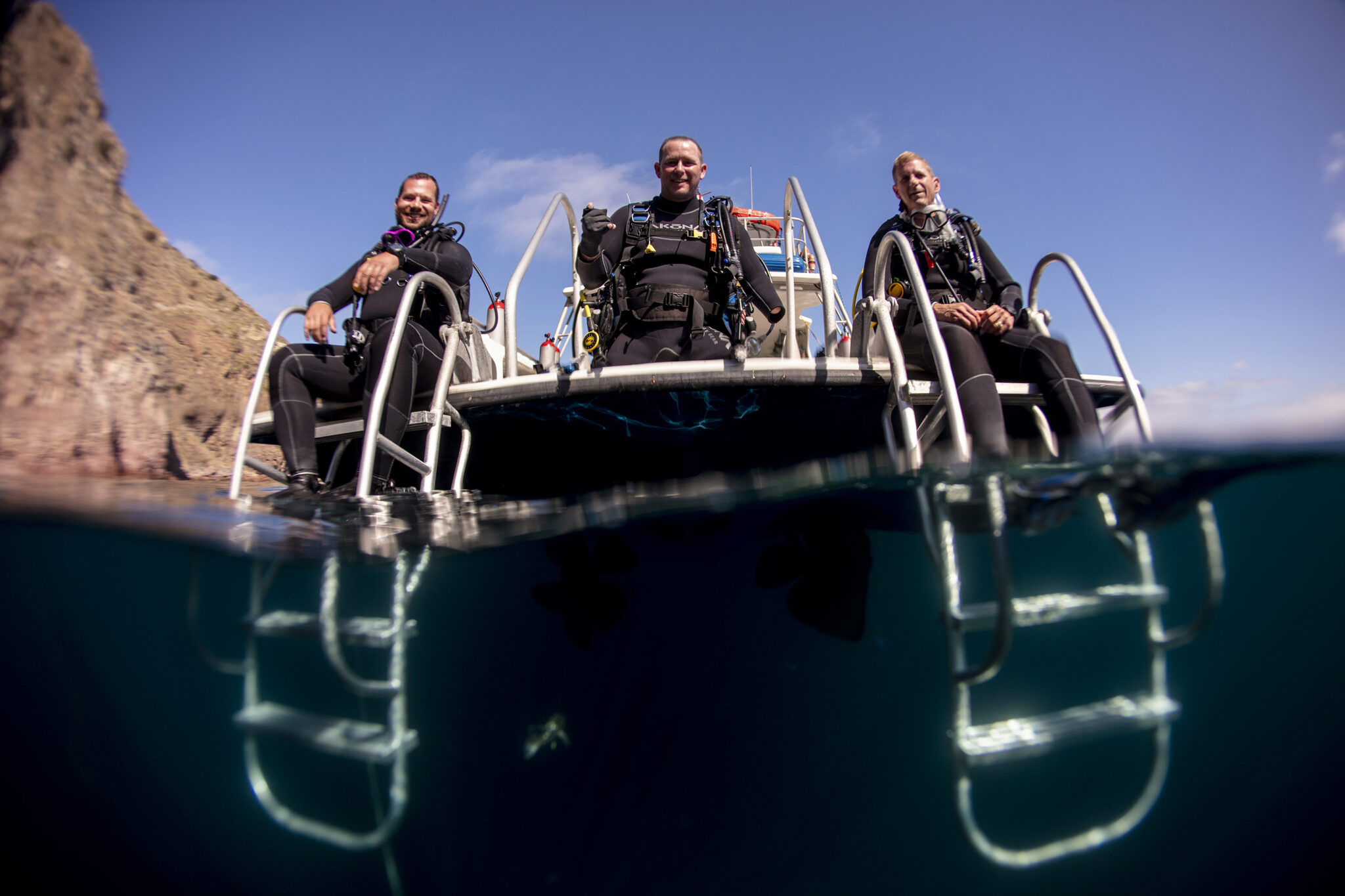
Bryan proved proof of this maxim. The boat anchored at a shallow site protected from the waves that galloped along the coastline. Bryan kitted up next to Bob and, after a pre-dive safety check, we all splashed into the welcoming sea. Wide eyed, he crept his way down the descent line. Floating just above the bottom, we conducted our few overt skills, and began a slow tour along the rocky reef. His strokes were tentative at first as if expecting to encounter some camouflaged challenge just beyond each bend. Slowly, like a cramped muscle releasing into a stretch, he found his ease and was soon peering into the crevices of the reef with unveiled wonder.
When we returned to the boat, Bryan’s bubbling excitement found an eager audience as he recounted every detail of his first open water dive. After the second dive of the day, he was buzzing as he and Bob bantered about the dives they would do together after certification. For my part, I luxuriated in the fizzing enthusiasm as I watched the sea peel away in our wake.
There is a sort of alchemy to diving. It takes those who pursue it, regardless of physical or cognitive ability, and, through a blend of adventure, practice, and patience, it transforms them into something stronger, more courageous. It rekindles the child-like awe in our hearts. Bryan had many of those qualities in spades but sitting on the back of that boat basking in the glow of his triumph, I saw even the incredible Bryan Anderson grow just a little more indomitable. I saw him become a diver.
This article was written by Robert Currer.
Robert Currer is a Course Director, Regional Training Consultant, and Instructor Examiner for PADI. He has been diving for nearly two decades all over the world but still counts his experiences teaching adaptive diving among his favorite dives.
